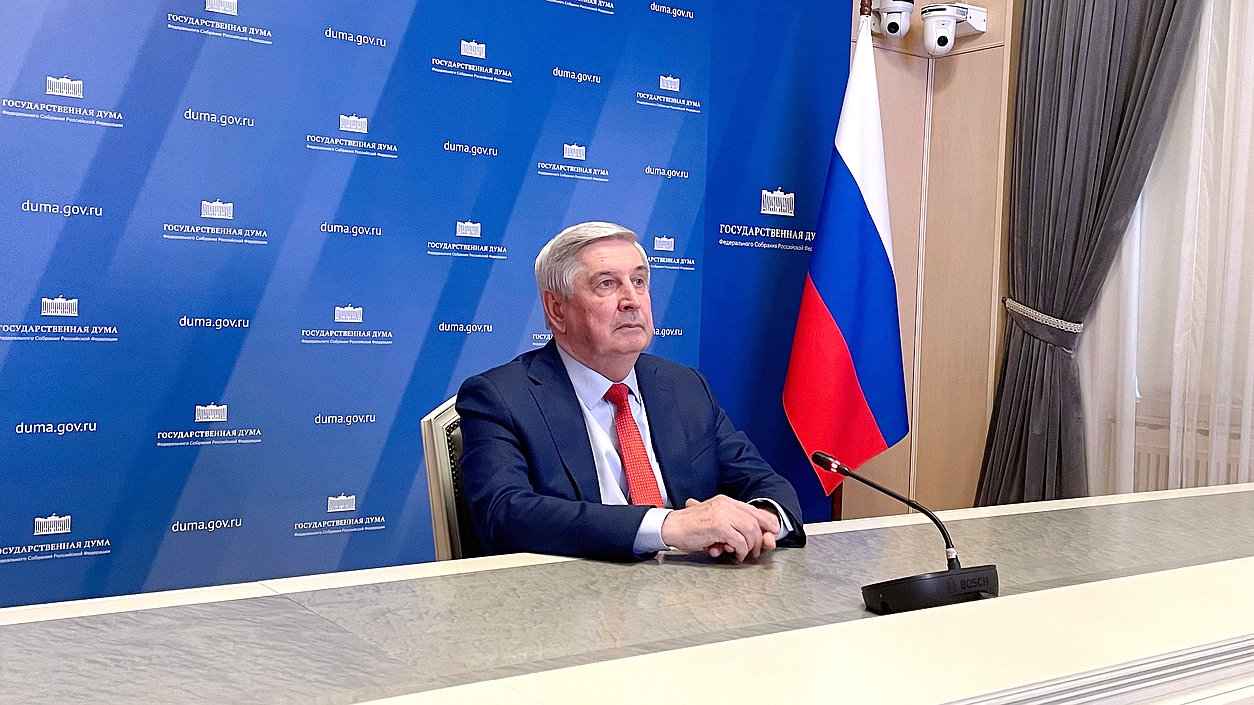
Ivan Melnikov

Ivan Ivanovich
took part in the BRICS Seminar on Governance and Cultural Exchange Forum, which were
organized by the Propaganda Department of the CPC Central Committee, the China
International Communications Group (CICG), Rossiyskaya Gazeta with the support
of the Academy of Contemporary China and World Studies, the Europe and Asia
Broadcasting Center of the China International Communications Group, and the Institute of China and Contemporary Asia of the Russian Academy of Sciences.
“The current forum is being held in the year of Russia's BRICS chairmanship, the motto of which is “strengthening multilateralism for equitable global development and security.” In total, more than 200 events will be organized under the chairmanship. And it is very important that one of them includes in the agenda such an issue as the modernization of the BRICS countries.
The issue of finding ways to modernization is certainly complex. Especially today, when, in the conditions of extreme volatility of the international system, the preservation of stability rather than the desire to modernize comes becomes a priority. However, even in the most difficult conditions, development and modernization are necessary for the prosperity of each state. The main question is how to approach this modernization.
For many years, we have witnessed how the United States of America convinced the whole world that there is only one path to modernization — the Western one. This path actually implied the rejection of what makes each country unique: its traditions, history and sometimes even language — in favor of the opportunistic interests of Western countries. But today we see a denial of this aggressive trend, we see how this order is being destroyed. It is being replaced by true multipolarity, based on the idea that there is no universal, common path to development and modernization. Each path is special in its own way, it must take into account national conditions and specifics, lead to an improvement of the standards of living and well-being of the people of its own country.
It would not be an exaggeration to say that each of the BRICS member states has found such a path. This path is certainly not a straight line, but rather like a graph with both rapid ups and downs. There is nothing wrong with the downs, because the main thing is that there will be new ups after that. In such a situation, it is very important to look for innovative approaches and be ready to gradually reform the necessary areas.
Reforms and innovations have become the main driving forces of the BRICS development. It is great that each country also chooses its own specialization and sets its own priorities. Thus, Russia attaches great importance to innovations in the fields of energy, agriculture, space research, and issue of obtaining sovereignty in all areas is the key issue of our entire policy.
At the same time, it is necessary to recognize that breakthrough innovations require huge expenses and many years of hard work. Therefore, today it is fundamentally important to strengthen our cooperation, enhance our dialogue so that the burden of achieving innovation progress does not fall only on a small circle of countries, and the benefits will be equally received by all participants in the process.
Within the BRICS framework, there are a number of formats that contribute to this. In the humanitarian sphere alone, there are various BRICS alliances, the network university is actively working and enhancing its activities, there are being held film and cultural festivals, and the fifth sports games have been successfully held. These programs promote mutual understanding and rapprochement of the nations, and also create a basis for long-term cooperation between our countries.
The path of modernization of the BRICS countries is built on the principles of preservation of unique national traditions and features, innovations and reforms, development of advanced areas and strengthening of dialogue. As the number of participants and formats is growing, our opportunities and the role of BRICS in the global arena are growing too. Today, when BRICS already consists of 10 member states, and 27 states, as emphasized the Minister of Foreign Affairs of the Russian Federation Sergey Lavrov, are “waiting to receive at least a cooperating state status”, one of our main tasks is to achieve the harmonious integration of new participants into all existing BRICS formats.
I am convinced that the results of today's forum, which brought together many different participants, will make a significant contribution to the development of cooperation within the BRICS and will help us to deepen our understanding of approaches to modernization within the framework of our organization,” said Ivan Melnikov addressing the participants.
